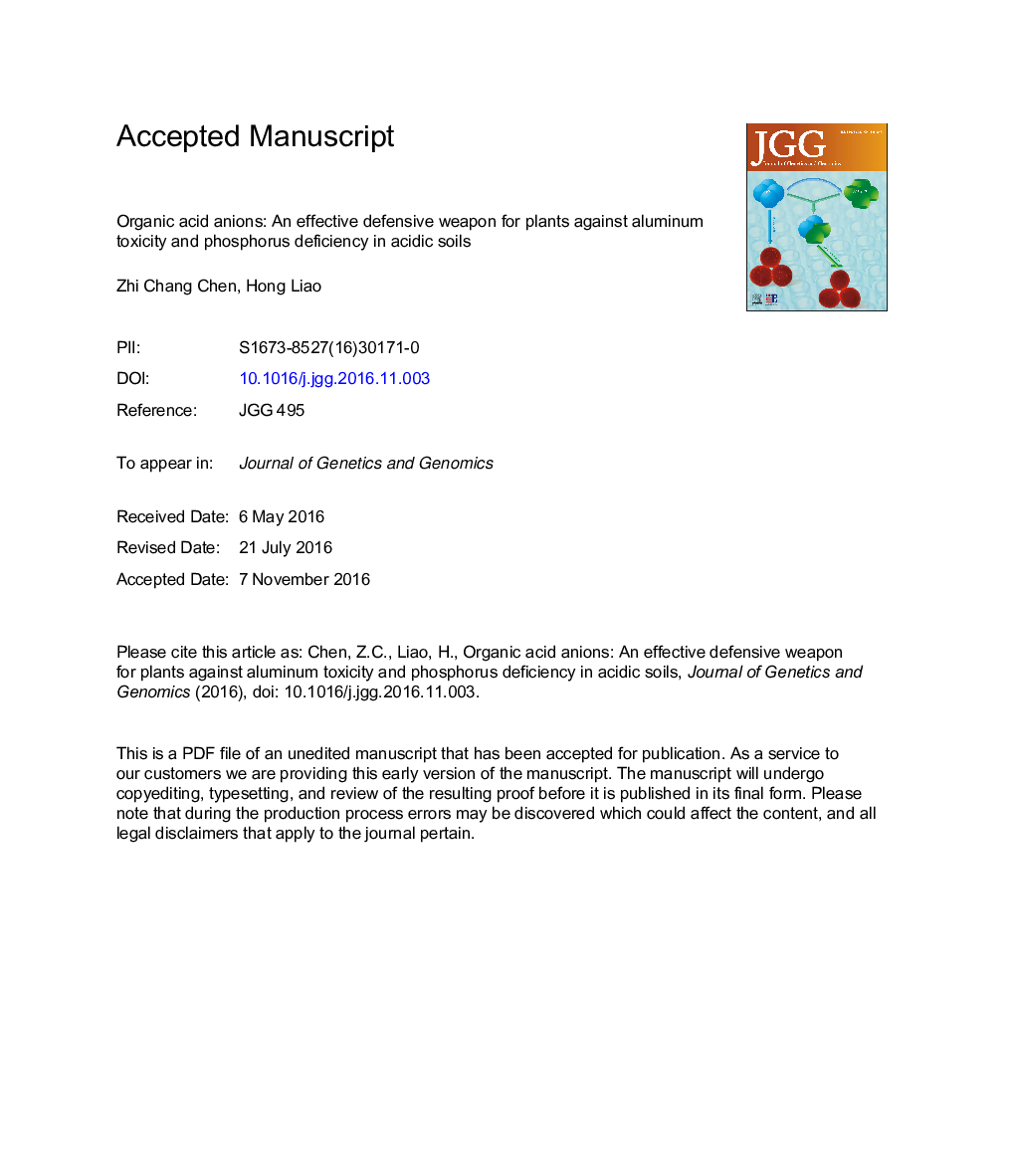| Article ID | Journal | Published Year | Pages | File Type |
|---|---|---|---|---|
| 5585877 | Journal of Genetics and Genomics | 2016 | 27 Pages |
Abstract
Aluminum (Al) toxicity and phosphorous (P) deficiency are two major limiting factors for plant growth on acidic soils. Thus, the physiological mechanisms for Al tolerance and P acquisition have been intensively studied. A commonly observed trait is that plants have developed the ability to utilize organic acid anions (OAs; mainly malate, citrate and oxalate) to combat Al toxicity and P deficiency. OAs secreted by roots into the rhizosphere can externally chelate Al3+ and mobilize phosphate (Pi), while OAs synthesized in the cell can internally sequester Al3+ into the vacuole and release free Pi for metabolism. Molecular mechanisms involved in OA synthesis and transport have been described in detail. Ensuing genetic improvement for Al tolerance and P efficiency through increased OA exudation and/or synthesis in crops has been achieved by transgenic and marker-assisted breeding. This review mainly elucidates the crucial roles of OAs in plant Al tolerance and P efficiency through summarizing associated physiological mechanisms, molecular traits and genetic manipulation of crops.
Keywords
Related Topics
Life Sciences
Biochemistry, Genetics and Molecular Biology
Developmental Biology
Authors
Zhi Chang Chen, Hong Liao,
